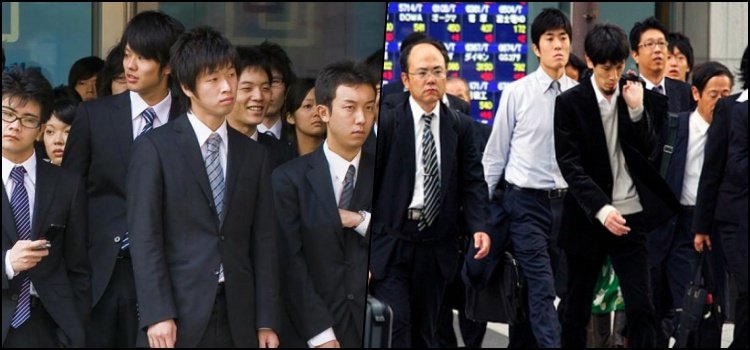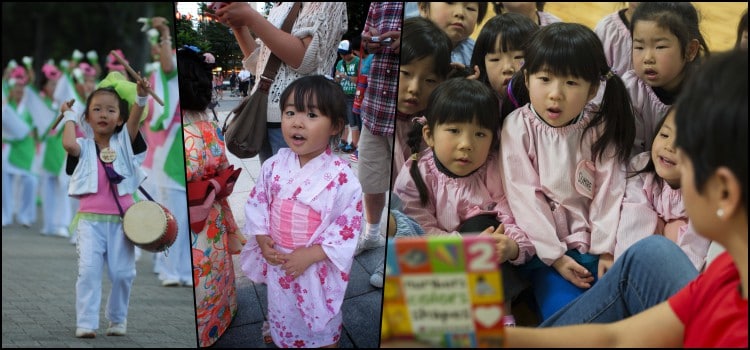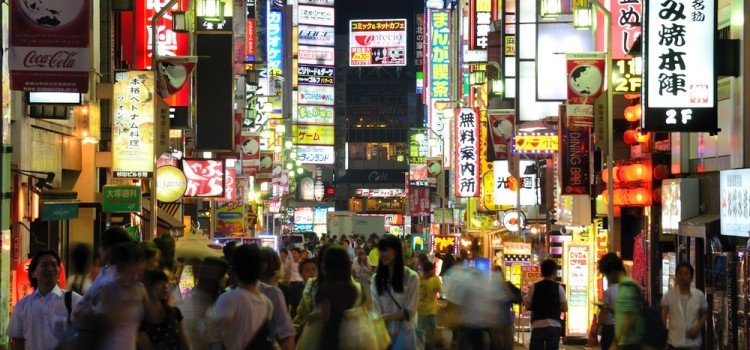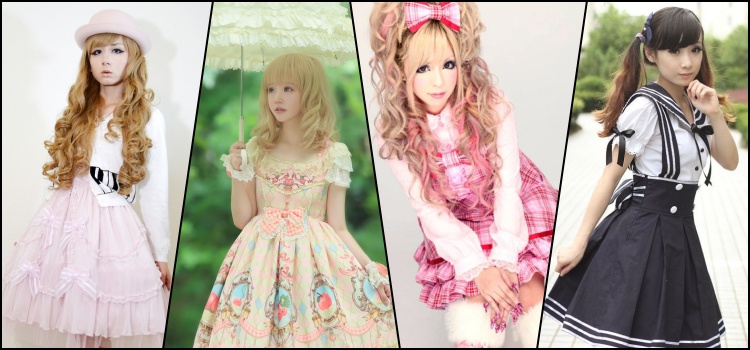Do you know the meaning of san, chan, kun at the end of names in the Japanese language? In this article, we are going to talk about Japanese honorifics.
The Japanese language uses a wide variety of honorific suffixes to refer to people with more respect. These honorary titles are gender neutral and can be attached to first names as well as surnames and even objects.
The honorific is generally used to refer to the person you are talking to, or when referring to a third party. It is never used to refer to oneself, except for dramatic effect, or in some exceptional cases. Most honorifics can be written in hiragana, but we will only put romanization and kanji in the article.
It is very important to learn all the titles and honorific suffixes, because they are always used in the Japanese language, especially the suffixes that are used after the person's name. We will see most of them in this article:

Índice de Conteúdo
What does San mean in Japanese?
San (さん) is derived from sama, is the most common honorific, and is a title of respect normally used between equals of any age. Although the closest analogue in Portuguese is the honorifics "Mr.", "Miss" or "Madam". San is almost universally added to a person's name, in both formal and informal contexts.
The importance of -san is very big, what I'm going to say now is a personal opinion, but let's say I'm talking to someone called Ichigo, which also means strawberry, if I don't use the honorific suffixes someone might end up confusing the person's name with the strawberry.
- In addition to being a suffix used in personal names, the suffix "san" is also used in a variety of other ways.
- Sometimes it is pronounced "han" (はん) in the Kansai dialect;
- Some Online MMORPGs players usually put the 3 (san) after the name to refer to the suffix san;
San is also used in combination with nouns in the workplace, so a bookseller may be addressed or referred to as honya-san ("bookshop" + san ), and a butcher like nikuya-san ("butcher shop" + san ).
San is sometimes used with company names. For example, the offices or store of a company called Kojima Denki may be referred to as “Kojima Denki-san” by another company nearby. This can be seen in small maps often used in phone books and business cards in Japan.
San it can also be attached to the names of animals or even inanimate objects. For example, a pet rabbit might be called Usagi-san. (It might be considered childish, it's like you're saying: Mr Rabbit.)

What does chan kun and tan mean in Japanese?
Chan (ちゃん) is a diminutive suffix that expresses formality, trust, affinity or security with the other person. But use the chan with superior or older people is ugly and rude. Generally, chan It is used for babies, children, grandparents and teenagers.
Chan is used most often to refer to young women, men rarely use -chan, they often use -kun. Chan can also be used on cute animals, lovers and close friends.
To accentuate the informality, you can assign the suffix to the other person's initial. For example, a woman named Momoko might be called Mo-chan by someone close to her.
Kun (君) – This is a low-education particle, also its kanji is the same as “kimi” which means “you/thou”. The suffix -kun is used between friends, a colleague, a brother or a younger boy. It is often used in the relationship “superior talking to an inferior” to refer to the inferior.
Tan (たん) - It means the same thing as chan, except that it is often used by children when they mispronounce the word. It can be used to make things look prettier when added to a name.

What does owner and sama mean in Japanese?
It is a significantly more respectful and formal version of the san. It is mainly used to refer to people much higher up in the hierarchy, and sometimes to a person you idolize or greatly admire. When used to refer to oneself, sama expresses extreme arrogance (or irony).
Examples: The suffix sama is often used to address Kings, Princesses, Gods, Chiefs, and customers in a store.
Size / Flame - Tama and Call are the children's versions of sama, when kids end up getting the word wrong and it became popular and kawaii.
owner (殿) – This suffix is very rare these days and is used to show a very high degree of respect (even more than “-sama”). It was used to talk about samurai warriors in Edo times. Since then "-dono" has only been used to talk about warriors, but it is perfectly possible to use it on ordinary people, if they are very important.

The article is still halfway through, but we recommend also reading:
What does sensei, senpai and kohai mean in japanese?
Senpai (先輩) is used to address or refer to an older colleague in a school, company, sports club, or other group. So, in school, students of higher grades than yours are considered senpai. Students of the same or lower grade cannot be senpai, nor can teachers. In a business environment, more experienced colleagues are senpai, but a boss is not. Senpai can be used by itself, or as a suffix.
Kōhai (後輩) – Refers to a junior, or the inverse of senpai, but is not normally used as an honorific. Sometimes you can even use kouhai-kun to refer to a kouhai.
Sensei – It is commonly translated as “teacher”. However, that is not the genuine meaning of this suffix. Sensei is used to talk about people “who were born before” (us) and who, for that reason, have more knowledge and experience in a certain area. For example, “-sensei” is used to speak of masters in Fine Arts, Martial Arts or Literature. It is also normal to call a doctor a sensei, for example: “Mizaki-sensei”, that is, Dr. Mizaki.
Shi – Shi is used in formal writing, to refer to a person who is unfamiliar with the speaker, typically a person known through publications whom the speaker has never actually met. For example, the This word is untranslatable. it is common in the speech of speakers, in legal documents, academic publications, and some other formal styles of writing and speaking. Once a person's name has been used with This word is untranslatable., the person can be referred to with This word is untranslatable. alone, without the name, as long as there is only one person to be referred to.

Other Japanese Honorifics
Athlete – This suffix means “sportsman” or “one who practices sport”. Used to talk about people who play sports like football/soccer, baseball and even Formula 1 racing.
Zeki (関) – Also used for sportsmen but only for Sumo wrestlers, especially high-class ones.
Ue (上) – Very used in the past, among aristocratic families, to refer to someone whom you feel a lot of respect, such as father, mother and other members of the family itself. Examples: chichi-ue (father), haha-ue (mother), ani-ue (older brother), ane-ue (older sister).
Iemoto (家元) - Is a more formal version of “sensei”, used for great masters of traditional art such as Japanese calligraphy or tea ceremony.
Hikoku (被告) – Used to refer to convicted criminals. Suspects still awaiting trial are referred to as “yogisha”.
Hime (姫) – Even though it is usually translated as “princess”, the suffix -hime can refer to a lady of noble origin.
Heika (陛下) – This is a royal title, which translates as “majesty”. For example, Tennō heika (天皇陛下) meaning "Her Majesty the Emperor" and Joo heika (女王陛下) meaning "Her Majesty the Queen". Another similar title is Denka (殿下), which translates as "Royal Highness".
Kappa (閣下) – Kappa is an honorific title meaning “Your Excellency” and is generally used for ambassadors and some heads of state.
Bochan – Used for rich children, usually by butlers.
Your Highness - Denka is used for non-sovereign royalty, similar to "Royal Highness". Denka can be used by itself, such as "Your Royal Highness".
Hidenka (妃殿下)) – Hidenka is for addressing the prince's consort, and is used in the same way as the other royal titles.

Japanese honorifics Daitouryou [大統領]
Daitouryou means “president” and is used for any national president. It is most commonly attached to a name, such as the 44th President of the United States, Obama-President (オバマ大統領).
- Hoshi (Monk) Buddhist monk;
- Shinpu (Priest) Catholic priest;
- Bokushi 牧師) Protestant priest;
- Senshi (Warrior) Used for Warriors;
Japanese honorifics Shogo [称号]
They are titles created by Dai Nippon Butoku Kai together with the International Federation of Martial Arts of Europe. To refer to people at a certain martial arts level.
- Renshi (錬士): Instructor. (Specialist or specialist teacher) Granted from 4th Dan onwards;
- Kyoshi (教士) Refers to a senior professor. (Senior Professor / Expert). Granted from 6th Dan onwards;
- Hanshi (範士) Refers to a senior expert considered a "teacher of teachers";
- Meijin (Celebrity): Granted by a special board of examiners;
- Oyakata (Mestre) Master, especially a sumo coach. Also used by yakuza and has been used by samurais to daimyō.
- Shihan (師範) Means chief instructor;
- Shidoin (指導員) Intermediate Instructor;
- Shisho (Master) Another title used for martial arts instructors;
- Zeki (関) Literally "barrier", used for sumo wrestlers in the top two divisions (sekitori);



![Keiyoushi - Japanese i-type adjectives [い] - List](https://skdesu.com/wp-content/uploads/2014/12/adjetivos-nihongo-250x175.jpg)


